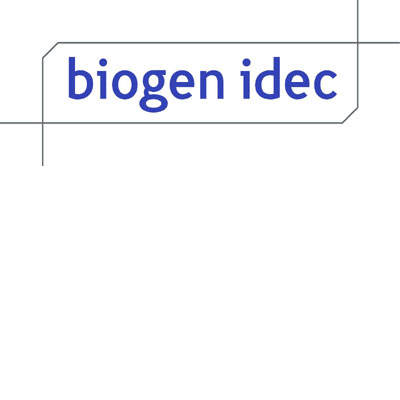Biogen Idec and Isis Pharmaceuticals announce global collaboration
Posted: 4 January 2012 | | No comments yet
Biogen Idec and Isis Pharmaceuticals, Inc. have entered into an exclusive, worldwide option and collaboration agreement…


Biogen Idec (NASDAQ: BIIB) and Isis Pharmaceuticals, Inc. (NASDAQ: ISIS) today announced that they have entered into an exclusive, worldwide option and collaboration agreement under which the companies will develop and commercialize Isis’ antisense investigational drug, ISIS-SMNRx, for the treatment of spinal muscular atrophy (SMA).
SMA is a genetic neuromuscular disease characterized by muscle atrophy and weakness, and it is the most common genetic cause of infant mortality. One child out of every 10,000 births worldwide is born with SMA. Children with SMA generally appear normal at birth, with symptoms developing as early as a few months after birth, and in the most severe form of the disease, children have a significantly shortened lifespan. Isis’ ISIS-SMNRx is designed to compensate for the underlying genetic defect that causes SMA.
Under the terms of the agreement, Isis will receive an upfront payment of $29 million and is eligible to receive up to $45 million in milestone payments associated with the clinical development of ISIS-SMNRx prior to licensing. Biogen Idec has the option to license ISIS-SMNRx until completion of the first successful Phase 2/3 trial. Isis could receive up to another $225 million in a license fee and regulatory milestone payments. In addition, Isis will receive double-digit royalties on sales of ISIS-SMNRx. Isis will be responsible for global development of ISIS-SMNRx through the completion of Phase 2/3 registrational clinical trials, with Biogen Idec providing advice on the clinical trial design and regulatory strategy. If Biogen Idec exercises its option, it will assume global development, regulatory and commercialization responsibilities.
“SMA is a heartbreaking disease – it can kill children before their 2nd birthday and there are currently no therapies to treat the disease,” said George A. Scangos, Ph.D., CEO of Biogen Idec. “It is exactly the kind of disease and program that we are focused on at Biogen Idec. The unmet need could not be any greater, the program fits with our mission to bring innovative therapies to patients with serious neurologic diseases, and Isis’ antisense compound has the potential to be a highly effective, first-to-market therapy for this deadly disease. We have the utmost respect for Isis’ scientific leadership and expertise in antisense technology, and we have crafted a collaboration that brings together our two companies’ strengths toward a common goal.”
“Biogen Idec’s expertise in the global development and commercialization of innovative new therapies for neurologic diseases is a great strategic fit to advance ISIS-SMNRx,” said Stanley T. Crooke, M.D., Ph.D., Chairman of the Board and Chief Executive Officer. “This alliance is consistent with our business strategy to develop antisense drugs to proof-of-concept with a knowledgeable partner that is committed to supporting the rapid development of the drug. Given the severity of the unmet need in SMA, our proof-of-concept studies should also serve as the registrational trials for ISIS-SMNRx. We believe that, together with Biogen Idec, we will be able to expeditiously develop this investigational drug in hopes of bringing to market an effective and desperately needed treatment to improve the lives of children with SMA.”
About SMA
SMA is a severe genetic disease that affects approximately 30,000-35,000 patients in the United States, Europe and Japan. One in 50 people, the equivalent of about 6 million people in the United States, are carriers of the SMA gene. Carriers experience no symptoms and do not develop the disease. However, when both parents are carriers, there is a one in four chance that their child will have SMA. SMA is caused by a loss of, or defect in, the survival motor neuron 1 (SMN1) gene leading to a decrease in the survival motor neuron (SMN) protein. SMN is critical to the health and survival of nerve cells in the spinal cord responsible for neuromuscular growth and function. The severity of SMA correlates with the amount of SMN protein. Infants with Type 1 SMA, the most severe form of the disease, produce very little SMN protein and have a life expectancy of less than two years. Children with Type II have greater amounts of SMN protein but still have a shortened lifespan and are never able to stand independently. Children with Type III have a normal lifespan but accumulate life-long physical disabilities as they grow.
About ISIS-SMNRx
ISIS-SMNRx is designed to treat all types of childhood SMA by altering the splicing of a closely related gene (SMN2) to increase production of fully functional SMN protein. The United States Food and Drug Administration granted orphan drug status and fast track designation to ISIS-SMNRx for the treatment of patients with SMA. In December 2011, Isis initiated the first Phase 1 clinical study evaluating ISIS-SMNRx in children with SMA. The Phase 1 study is a single-dose, dose-escalation study designed to assess the safety, tolerability and the pharmacokinetic profile of the drug in children between the ages of 2 and 14 who are medically stable. In this study, ISIS-SMNRx will be administered intrathecally as a single injection directly into the spinal fluid. Isis plans to follow this study with a Phase 1 multiple-ascending dose study.
Isis acknowledges support from the following organizations for ISIS-SMNRx: Muscular Dystrophy Association, SMA Foundation, Families of SMA and intellectual property licensed from Cold Spring Harbor Laboratory and the University of Massachusetts Medical School.




